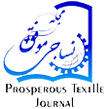Protective masks, everyday masks, disinfecting wipes and surgical gowns are goods in demand in times of corona. In their manufacture, textile machines are at the beginning of the production chain.
The production of the textile raw material is the first step of the usually multi-stage production processes. Members of the VDMA Textile Machinery Association are at the beginning of this technological chain.
The production of protective masks starts with the manufacture of the filter material, which for surgical masks as well as FFP2 and FFP3 respirator masks consists of fine-pored nonwoven fabric to intercept coronaviruses. In addition to the systems, machines and components used for this purpose, measurement and control technology ensures the highest quality of important parameters such as basis weight and air permeability. Nonwovens used for respiratory masks have to meet the same high-quality requirements as the masks – to ensure the protection of the mask wearer.
Members of the VDMA Textile Machinery Association have reacted to the new market requirements in a very short time and developed new technologies for knitted, warp knitted as well as woven mouth and nose masks that can be produced without the need for sewing. For surgical masks, FFP2 respirators and social distancing masks, a wide variety of other materials and combinations of materials are used (nonwovens, woven fabrics, knitted or warp knitted fabrics and laminates thereof). Elastic bands are required to wear the masks and several association members provide technologies for their production.
Materials for masks can be treated with textile chemicals to make them antiviral and antibacterial. For this purpose, the VDMA member companies offer application systems which apply the corresponding chemicals to fabric webs. As already mentioned, quality assurance is extremely important for medical products. For this purpose, member companies of the VDMA offer software systems with which each mask can be traced through the entire production process.
VDMA members also offer solutions for the assembly of respirator masks, some of which were developed at short notice. These solutions enable respirators to be produced that meet the relevant standards and the highest quality requirements of customers and market surveillance. This applies to systems for the production of surgical masks and FFP respirators. At the end of the production chain, machines are used to pack masks in single or multiple packs.
In pandemic times, the demand for protective gowns (so-called surgical gowns) also increases. The same applies to disinfecting wipes. For these textile products, too, VDMA members manufacture tailor-made machines for production through to packaging. The quality of the products is ensured by means of measurement and control technology.
An Internet article at http://www.machines-for-textiles.com provides detailed information on process steps and the range of services offered by the members of VDMA Textile Machinery. The overview is continuously updated. For research purposes, the manufacturers’ directory at http://www.machines-for-textiles.com is also available, as are the industry experts by sending an enquiry to txm@vdma.org.
In the wake of the corona crisis, VDMA Textile Machinery has launched a new series of web events called “Textile Machinery Webtalk”. Here, experts from up to four VDMA member companies present their innovative technologies on a specific topic in a maximum of 90 minutes and are available to answer questions from participants. The presentations are held in English. Participation in the web events is free of charge.
Topics of the first two webtalks were:
“Technologies for the production of melt-blown nonwovens for respiratory protection masks (FFP masks and surgical masks).”
“Technologies for the production of respiratory protection masks (FFP masks and surgical masks).”
The format is well received. Around 180 people from more than 30 countries took part in the first two webtalks. With this format, the VDMA reaches both textile and nonwovens manufacturers who already manufacture these products and companies that want to invest in new business areas.
The next webtalk will take place on 23 July 2020 from 14.00 to 16.00 (CEST) on the current topic “Technology solutions to produce fully-fashioned community face masks.” Experts from KARL MAYER, STOLL by KARL MAYER and Jakob Müller will be presenting their technologies for producing everyday textile masks to an international expert audience. Interested parties can register here: https://register.gotowebinar.com/register/2607744021751510284
Further webtalks are in preparation. Up-to-date information on this will be published at www.machines-for-textiles.com/webtalk.
Contact
Nicolai Strauch
Phone: 49 69 6603 1366
Fax: 49 69 6603 2366
Email: nicolai.strauch@vdma.org
Website: txm.vdma.org
You might also like

